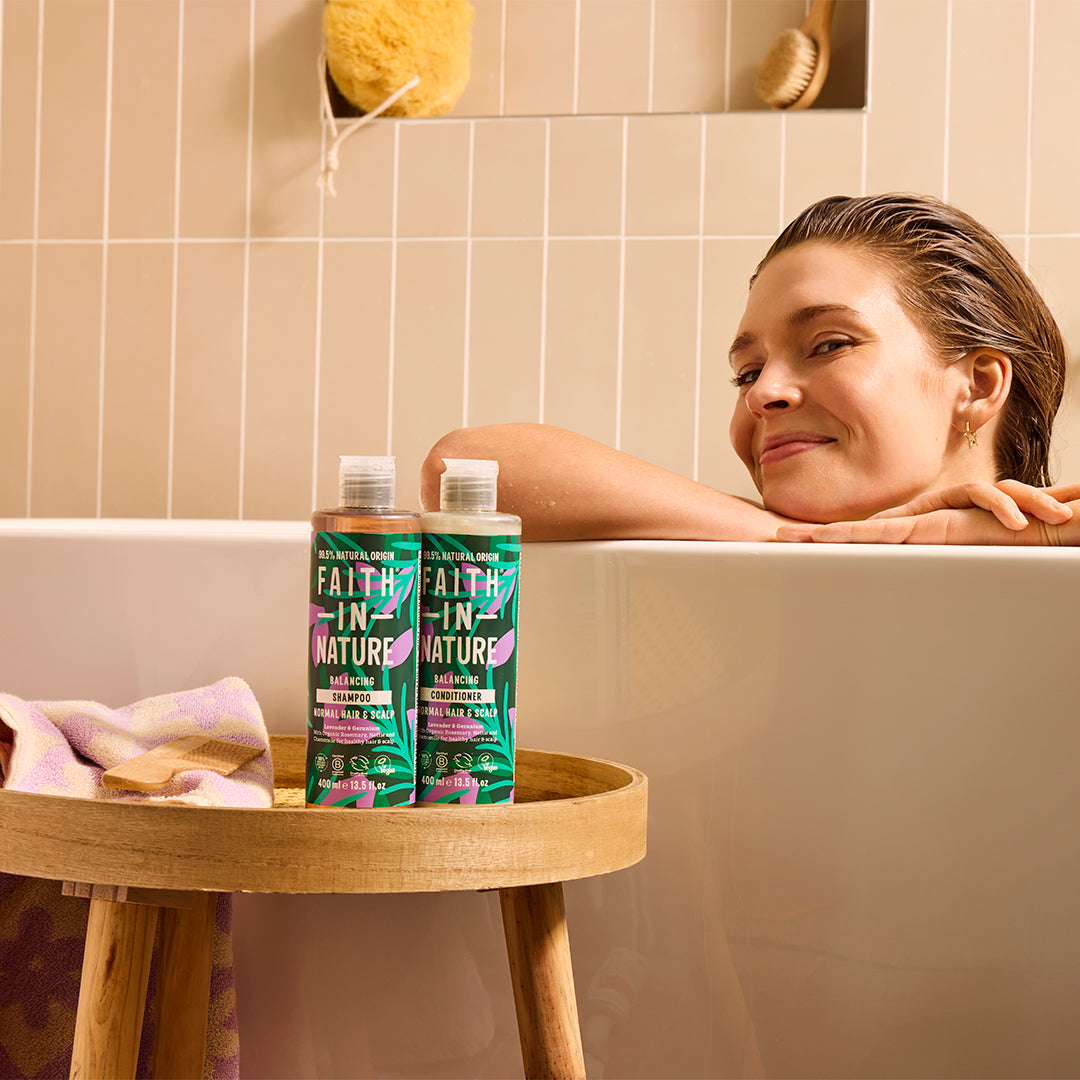
10, July 2024
The Top 5 Reasons You Shouldn’t Go To Bed With Wet Hair
When temperatures hit their peak in the summer, it’s fair to say that washing your hair can feel like nothing short of a treacherous mission.
While a cold shower after a hot day in the sun might leave us feeling refreshed, a full shampoo and conditioner routine followed by the dreaded heat of the hairdryer can have the opposite effect, leaving many of us guilty of jumping into bed with our hair soaking wet.
While going to bed with wet hair probably won’t make you catch a cold (despite what your mum might tell you), it isn’t exactly great for your hair either: our hair is much weaker when it’s wet than when it’s dry, which can cause a whole host of different problems.
To help keep your hair healthy during the night, our expert hair care team explains the top 5 reasons why you shouldn’t sleep with wet hair and shares 5 alternative ways you can do it without causing too much damage if you can’t avoid it. Check them out below:
Why you shouldn’t sleep with wet hair
1. Hair breakage and damage
As mentioned, our hair is weaker when wet, making it more prone to breaking. Unless you’re sleeping the entire night flat on your back in the ‘soldier’ position, then the likelihood is that sleeping with wet hair will cause some damage.
Our hair is largely made up of proteins called keratins, but when our hair is wet, these proteins form weaker bonds that make it easier to damage when our hair is brushed or otherwise roughly handled (like tossing and turning at night).
2. Scalp irritation and fungal infections
Sleeping with wet hair can put you more at risk of dandruff, scalp irritation, or even a nasty fungal infection. Bacteria thrive in moist environments, so your wet pillow and scalp are a hotbed (no pun intended) for bacteria or fungi growth.
While this likely won’t develop immediately, repeatedly going to bed with wet hair could cause some problems for your scalp, including:
- Malassezia: This is a fungus that can lead to conditions like dandruff or dermatitis. It causes flakey skin, excess hair shedding, itchy red patches, or even crusts on the scalp that can cause hair loss.
- Scalp ringworm: This is another fungal infection that you’re at risk of when sleeping with wet hair. The fungi can get into the hair itself and not just your scalp, making it weaker and more prone to breakage. It can also cause an itchy, ring-shaped rash on your scalp.
- Staphylococcus: This bacteria can cause the infection known as folliculitis. Folliculitis can cause red, inflamed bumps and even pus-filled pimples to develop around your hair follicles
3. Acne
Sleeping with wet hair can also cause skin problems, like acne, on your face and back.
As a general rule of thumb, dermatologists advise that you change your pillowcase at least once a week, but if you’re going to bed with wet hair, you might want to consider doing it every single night or at least every night you sleep with wet hair.
When our pillows become damp from wet hair, they can become an ideal environment for bacteria to thrive, which can have adverse effects on our skin and cause breakouts.
For those with longer hair, it's best to sleep with your hair dry and pulled away from your face.
4. Poor sleep quality
As we’ve already said, sleeping with wet hair probably won’t make you catch a cold - it could make you feel cold though and it can certainly lead to poorer quality of sleep.
While being cold might seem like the dream, especially during a heatwave, feeling too cold (or too hot, for that matter) can affect your body’s internal temperature and cause you to have a poorer quality of sleep.
And it probably goes without saying, but sleeping with a wet pillow isn’t exactly the most comfortable thing to do.
5. Dull hair
When you’re sleeping with wet hair, your pillow can absorb a lot of your hair's natural oils as it dries. As a result, your hair may end up looking dull and feel dehydrated.
When our hair is dehydrated, it's at even more risk of breakage. Some signs you might have dehydrated hair include:
- Split ends
- Frizziness or dullness
- Lacking shine
- Tough to style
- Itchy scalp
How to sleep with wet hair without damaging it
We know you’re probably not going to bed with wet hair every night, and the occasional night sleeping with wet hair isn’t going to completely ruin your hair, we hope!
While we’d always recommend going to bed with dry hair where possible, here are a few quick-fire tips on how to sleep with wet hair without damaging it:
Silk pillowcase:
To lower your risk of scalp problems, try to use a pillowcase fabric, like silk, that doesn’t retain as much water when going to bed with wet hair. This will also help limit friction for hair breakage and assist in overall skin health.
Use a microfibre towel:
Try to towel dry your hair as much as possible before you go to bed. Try a microfibre towel over your normal one. Microfibre towels are far gentler on our hair than cotton ones, which will help decrease frizz and breakage and the microfibre materials will help absorb more water from your hair than a standard towel.
Add as much time between washing and going to bed:
The longer you can leave your hair to air dry, the better. Going to bed with damp hair is much better than going with it sopping wet.
Blast it until it’s about 30% dry:
We know the thought of the hairdryer is what sends many people to bed with wet hair, but even blasting your hair on a cool setting until it's about 30% dry will help.
Use a leave-in conditioner:
To help prevent damage to your hair, consider using a leave-in conditioner when going to bed with your wet hair. This will help lock in the moisture and prevent dryness or damage.
Whether you have curly hair, straight hair, wavy hair, or something in between, we have plenty of useful tips for the best way to care for your hair depending on your hair type. Read more here!
How to care for your hair type

